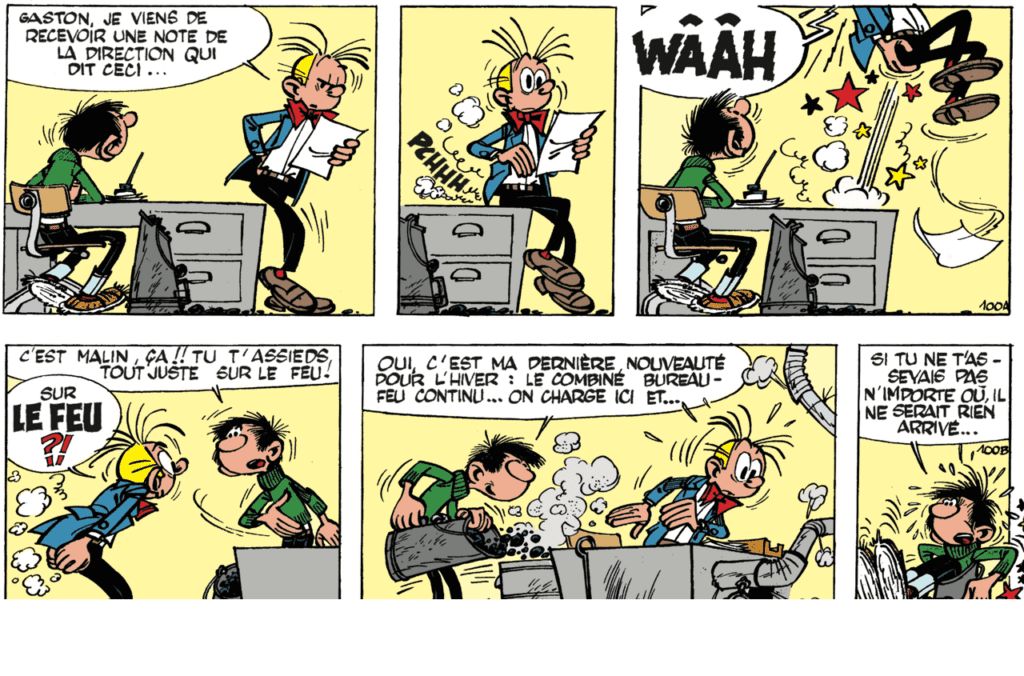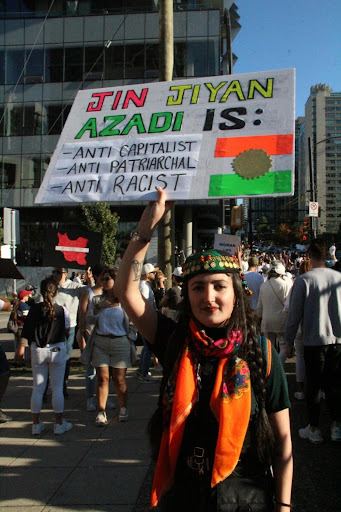
Courage In The Impossible: Gaza’s Poets Speak
Amidst Gaza’s turmoil, poets’ voices resonate. Explore Palestinian poetry’s power and resilience.


Laughter is a universal yet culturally-tinted phenomenon. It draws people together and has the power to stimulate physical, emotional, psychological and social changes. Ever wondered how people from different cultures conveyed laughter and humor? Join us as we explore laughter and humor in five different language-cultures!
In Persian, laughter is transcribed as either خخخخخ (khkhkhkhkh), ههههه (hahahahaha), or هاهاهاها (ha ha ha ha).
Central to Persian popular humor is the figure of Mulla Nasruddin Khodja. Born in Seljuk Sultanate of Rum in the 13th century, Khodja was a philosopher and a wise man who imparted his wisdom through witty jokes and funny tales. A famous Khodja tale that Persian-speakers (and others) chuckled to over generations goes as follows:
Mulla had lost his ring in the living room. He searched for it for a while, but since he could not find it, he went out into the yard and began to look there. His wife, who saw what he was doing, asked: “Mulla, you lost your ring in the room, why are you looking for it in the yard?” Mulla stroked his beard and said: “The room is too dark and I can’t see very well. I came out to the courtyard to look for my ring because there is much more light out here”.
In Arabic, laughter is written as ههههه (hhhhh or hahahaha), هاهاها (hā hā hā), or even هع هع هع (ha’ ha’ ha’).
Like Mulla Nasruddin Khodja in the Persian-speaking world, Arabic-speaking countries too have a popular figure who effortlessly combines humor and wisdom. Known as Juha, Djoha, or Goha, this figure first appeared in Al-Jahiz’s 9th-century book “Saying on Mules” (القول في البغال). However, over the centuries, the character of Juha was merged with that of Mulla Nasruddin Khodja. Juha appears in thousands of tales, always witty, sometimes wise, and other times gently absurd – a butt of his own jokes.
In one story, a man sees Juha across a raging river. “How do I get across?” the man cries. “You are there already!” Juha shouts back.
In Spanish, laughter is expressed as jajajaja (hahahaha).
The Spanish sense of humor is well encapsulated in Cervantes’ Don Quixote, a mock epic which satirizes early modern obsession with noble knights, ridiculous quests and chivalric attitudes. Published in two parts, in 1605 and 1615, it is considered one of the founding works of western literature. Humor in Don Quixote is subtle but sharp. Cervantes sets his story as follows, before going on to describe the absurd adventures of his titular character:
“En un lugar de la Mancha, de cuyo nombre no quiero acordarme, no hace mucho tiempo que vivía un hidalgo de los de lanza en astillero, adarga antigua, rocín flaco y galgo corredor.”
(‘‘Somewhere in La Mancha, in a place whose name I do not care to remember, a gentleman lived not long ago, one of those who has a lance and ancient shield on a shelf and keeps a skinny nag and a greyhound for racing.’’)
In Armenian, laughter is transcribed as հա հա հա (ha ha ha).
Humor, in more recent times, has been used by Armenians as a form of resistance and empowerment. The famous Radio Yerevan jokes are an example. Popular in the 20th century, these jokes took a Question & Answer format, mimicking that of popular series on Armenian Radio.
When asked ‘‘Could an atomic bomb destroy our beloved town, Yerevan, with its splendid buildings and beautiful gardens?’’
Radio Yerevan answered: ‘‘In principle, yes. But Moscow is a far more beautiful city.’’
In French, laughter is often expressed with the initials ‘mdr’ for mort de rire (dying of laughter) – equivalent to LOL in English.
French humor is celebrated in cartoonist André Franquin’s Gaston, a gag-a-day comic strip first published in 1957 in the comic strip Spirou. The series focuses on the everyday life of Gaston Lagaffe (meaning Gaston “the blunder”), a lazy and accident-prone office junior working at Spirou’s office in Brussels. It is much loved not only for its perfectly timed comedy, but also for its warm outlook on everyday life.

Explore humor and laughter in different languages this New Year with NaTakallam’s native language partners! Sign up for sessions here or spread the laughter (it’s contagious!) with a loved one by gifting a NaTakallam session here – an experience like no other.
Gaston comic visual source: philonomist.com/en/article/innovation-smile-gaston-lagaffe
Reimagine your language journey with NaTakallam.
Try a session in Arabic, Armenian, English, French, Kurdish, Persian or Spanish.
Languages open doors and minds. Discover new worlds.
Learn Arabic, Armenian, English, French, Kurdish, Persian or Spanish.
Deep dive into a language, packed with culture. Personalized to you.
Choose from Arabic, Armenian, English, French, Kurdish, Persian or Spanish.
Deep dive into a language, packed with culture. Personalized to you.
Choose from Arabic, Armenian, English, French, Kurdish, Persian or Spanish.
You might also LiKe

Amidst Gaza’s turmoil, poets’ voices resonate. Explore Palestinian poetry’s power and resilience.

Since the start of the ongoing Mahsa Amini Protests, we’ve heard the slogan “Woman, Life, Freedom” travel around the world. In Persian this is “zan, zendegî, âzâdî” (زن, زندگی, آزادی), but the slogan originates in the Kurdish language and the Kurdish struggle for autonomy.

A smattering of French slang from around the world! Learn more expressions like this with NaTakallam’s native speaking tutors.

Spanish is one of the fastest growing foreign languages in the world. Get access to the Spanish business world with our native tutors – tailored to your needs.
Improve your proficiency in Farsi or Dari & contextualize your learning with cultural insights from our native tutors. Language & culture go hand-in-hand at NaTakallam.
Looking to do business with Kurdish businesses? Learn with NaTakallam’s native speakers & reach new language (& business) goals – tailored to your professional needs.
Gain an edge with contextualized French learning by native tutors from displaced backgrounds. Flexible, with cultural & business insights, tailored to your needs.
Choose from Eastern Armenian or Western Armenian. Get quality teaching & unique insights from native tutors. Gain an edge with Armenian language skills.
Offer your team a smoother integration or transition with our customized English lessons delivered by bilingual tutors with extensive English instruction experience.
Choose from Modern Standard Arabic or any of our 7+ dialects offered by native tutors across the region. Take your proficiency to the next level & connect with the Arab business world.